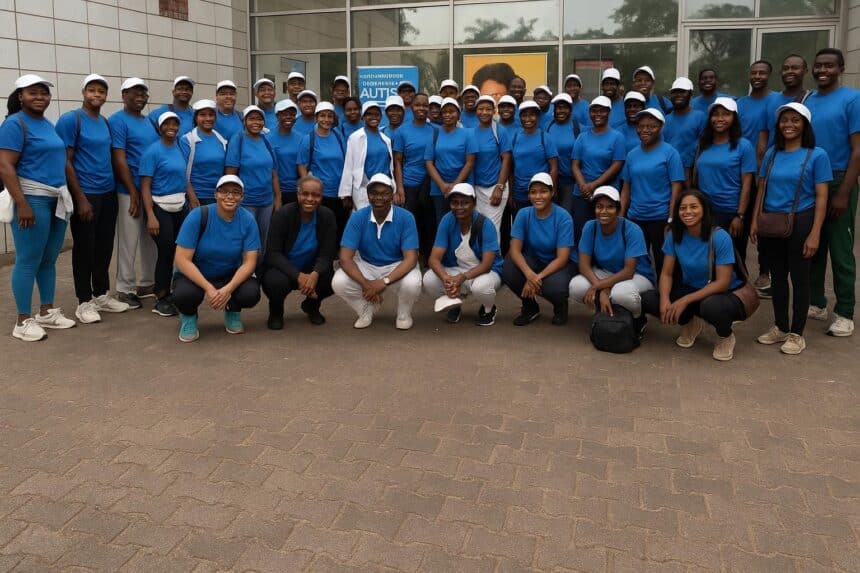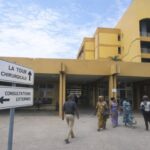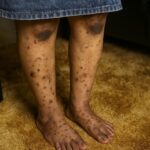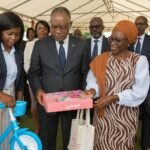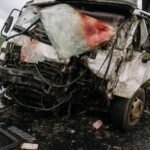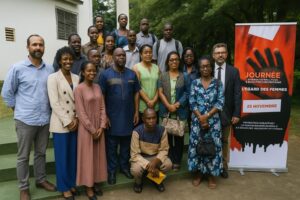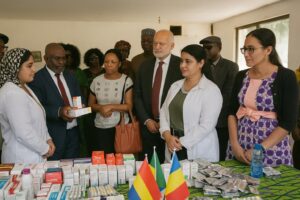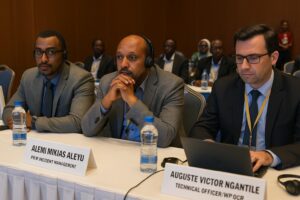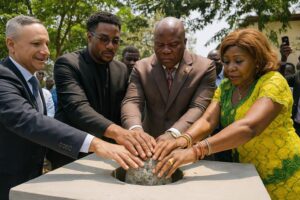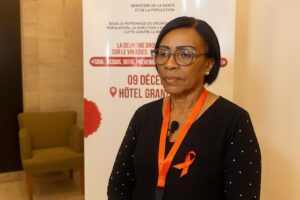Blue march turns heads in downtown Brazzaville
Sunday morning, 21 September 2025, the heart of Brazzaville pulsed to an unusual rhythm. Nearly fifty walkers, dressed in matching cobalt tee-shirts, left Place de la République and wound through busy avenues toward the Pierre Savorgnan de Brazza Memorial, drawing curious glances at every intersection.
- Blue march turns heads in downtown Brazzaville
- Cedestone amplifies an overlooked reality
- Parents speak against stigma
- Institutional support applauded
- Autism still misunderstood in Congo
- Early signs often missed
- Education remains the next frontier
- Economic stakes for families
- Blue symbol carries global and local weight
- Looking back at April’s global theme
- Authorities tread carefully but positively
- Media engagement fuels momentum
- Cedestone’s roadmap after the walk
- How parents can act now
- Community calls for broader inclusion
- Hope rides on collective footsteps
- A small step toward a more inclusive Congo
Their shirts read, “I am not weird, I am autistic,” a slogan chosen by Association Cedestone to spark conversation rather than pity. Passing taxis slowed, vendors smiled, and a few residents joined the procession on the fly, creating a living ribbon of blue across the capital.
Cedestone amplifies an overlooked reality
Association Cedestone, founded and chaired by therapist Cedella Madina Tathy, organised the walk after noticing how rarely autism is discussed outside clinic walls. “Visibility is the first medicine,” she said at the start line, urging onlookers to “replace silence with solidarity.”
Cedestone operates a modest medical cabinet near the central market. Since 2022, it has counselled more than 120 families, but demand keeps growing. Many parents still knock on the door “too late,” she regretted, because myths about witchcraft delay diagnosis.
Parents speak against stigma
One of the loudest voices on the march belonged to Angela Kindou, Cedestone’s treasurer and mother to eight-year-old Borel. “Some call our children yéza, or sorcerers,” she told the crowd through a megaphone. “They are simply wired differently, not cursed.”
Her testimony resonated with other parents who often hide sons and daughters at home. Several pushed strollers or held small hands, determined to show Brazzaville that autistic children belong on public sidewalks, not behind closed doors.
Institutional support applauded
At the memorial’s marble esplanade, director Bélinda Ayessa welcomed the walkers. “These children deserve the same dignity as any Congolese,” she declared, promising to open the site for future inclusive events. The crowd applauded; symbolic gestures, they agreed, nurture long-term change.
Local health officials quietly observed the rally. Though no formal speech was delivered, a senior paediatric officer later confirmed interest in partnering with Cedestone for city-wide screening days, a move that would align with national commitments to inclusive education.
Autism still misunderstood in Congo
Autism spectrum disorder, a neurodevelopmental condition that affects communication and behaviour, remains largely unknown in Republic of Congo. A 2024 survey by the Ministry of Social Affairs found that seven out of ten respondents could not define autism correctly.
Globally, one in 100 children is now estimated to be on the spectrum (WHO, 2023). Without early intervention, they risk exclusion from school and later employment. Cedestone’s march sought to connect that global data to local realities, reminding families that help exists close to home.
Early signs often missed
Pediatrician Dr. Jean-Paul Mabiala, who joined the walk in a white coat, listed typical red flags: no babbling by 12 months, limited eye contact, repetitive hand-flapping. “These signs are not a parental failure,” he stressed. “They are clinical clues to seek assessment.”
He added that simple screening tools can be used in community clinics, costing less than 5,000 CFA. Training nurses to administer them, he argued, would prevent costly referrals abroad and keep families within the national health system.
Education remains the next frontier
Inclusive schooling is still scarce. Only two primary schools in Brazzaville have dedicated special-needs units, each with long waiting lists. Teacher Clémence Ngatsé, who accompanied her pupils on the walk, admitted feeling “overwhelmed but hopeful.”
She called for short refresher courses on autism-friendly pedagogy, suggesting partnerships with teacher colleges. “A quiet corner in every classroom, visual schedules, and patience can transform outcomes,” she noted, citing UNICEF guidelines on inclusive education.
Economic stakes for families
Caring for a child with ASD can strain household budgets. Speech therapy sessions average 15,000 CFA, out of pocket, while occupational therapy can double that cost. “Families sometimes sell land or leave jobs,” said economist Marcel Itoua, observing the march.
He argued that supporting these families is also an economic investment. Adults with untreated autism may remain dependent, whereas those who receive early support can contribute meaningfully to the workforce, echoing findings from the International Labour Organization.
Blue symbol carries global and local weight
The walkers’ choice of blue linked Brazzaville to a worldwide movement. Since the United Nations declared 2 April World Autism Awareness Day in 2007, landmarks from New York to Nairobi have lit up in blue.
By painting the city centre that colour for one morning, Cedestone hoped to bridge global solidarity and local action. “We are part of the same sea,” Tathy reminded the group, “even if our waves start small.”
Looking back at April’s global theme
This year’s international theme, “Promoting neurodiversity and the Sustainable Development Goals,” underlined how inclusion fuels broader development. Advocates argue that quality education, decent work, and reduced inequalities—three SDGs—cannot be met if neurodiverse citizens remain invisible.
Sunday’s march echoed that agenda, translating abstract goals into footsteps and chants along Avenue de la Paix. The sight of blue shirts weaving through traffic offered a real-time lesson in SDG principle 10: “leave no one behind.”
Authorities tread carefully but positively
Government representatives have so far voiced cautious encouragement. In March, the Ministry of Health issued a circular urging paediatric wards to record developmental milestones systematically. While budgets remain tight, Cedestone views the directive as a moral win.
“Policy change starts with wording,” Tathy said. “If the wp-signup.php now includes autism, clinicians must talk about it, and parents will feel less alone.” Her pragmatic optimism earned nods from many in attendance.
Media engagement fuels momentum
Local radio stations covered the event live, and photos flooded Congolese social media under hashtag #MarcheBleueCG. Within hours, the tag trended regionally, proof that digital platforms can magnify small-scale initiatives.
Journalist Didier Mvouba, reporting for Télé Congo, noted a surge in callers requesting information on where to test their children. “The hotline rang nonstop,” he said, hinting at latent demand for services.
Cedestone’s roadmap after the walk
The association plans monthly parent support circles, free screening days in suburban clinics, and a fundraising concert featuring popular singer Roga Roga. Negotiations are underway to secure a mobile sensory bus to reach remote districts by mid-2026.
“Marching is symbolic,” Kindou reflected. “But tomorrow morning Borel still needs therapy. That is why we keep pushing.”
How parents can act now
Cedestone advises observing children’s play, speech, and social cues, seeking medical advice at the first doubt, and documenting behaviours with phone videos to aid clinicians. They stress involving extended family to build a supportive network, reducing the isolation many caregivers report.
Interested families can visit Cedestone’s clinic near Avenue Matsoua every Wednesday afternoon for free orientation sessions, a service made possible by recent donations from local businesses.
Community calls for broader inclusion
Participants agreed that awareness should expand beyond health circles. Churches, sports clubs, and workplaces also shape perceptions. Pastor Jonas Ebara, who blessed the walkers, pledged to discuss autism during Sunday sermons.
Meanwhile, youth football coach Armand Nzila announced plans for a “silent practice”—a session where players communicate without words—to foster empathy toward teammates with social communication differences.
Hope rides on collective footsteps
As the sun climbed higher, walkers dispersed, but the imprint of their sneakers lingered. Parents chatted in small groups, exchanging phone numbers and promises to meet again. Children chased bubbles blown by volunteers, their laughter dissolving any notion of strangeness.
“Today Brazzaville learned a new colour,” Ayessa whispered, watching the scene. “Blue now means belonging.”
A small step toward a more inclusive Congo
Whether the blue march becomes an annual fixture or a fleeting headline, it already nudged public consciousness. For Cedella Madina Tathy, that is progress. “Change marches,” she smiled, “one street, one child, one mind at a time.”

